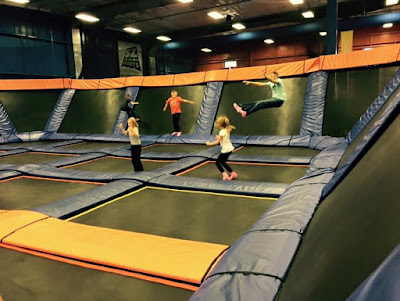"...Hey, Jesus, are you a Democrat?"
Our guest pastor in chapel today, the Reverend Doctor Paul Mpindi, quipped this line. I laughed, but now I'm wondering if he was right?
He was preaching on he story of the rich young ruler in
Mark 10. In the story, a young man comes
running to Jesus, falls at his feet, and asks, "What must I do to inherit eternal life?" Rev. Mpindi pointed out that he must have been hungry for the answer: he is identified in the story as being wealthy...and wealthy people don't run and fall down at someone's feet.
The story says that Jesus looked at this young man, and saw the heart of what he desired, and loved him. Jesus loved him!
And so, Jesus gives him this imperative: Go. Sell. Give. Come. Follow.
You want to inherit eternal life? Here's what to do:
- Go home. Check out all your stuff.
- Sell it all. ALL of your stuff.
- Give it away. All your possessions.
- Come back to me.
- Follow me. Really follow.
And the story says that the young man was very sad to hear this. Despite Jesus' love for him, this was too much for him. And he went away...but not to Go - Sell - Give - Come - Follow, by the evidence in the story. He went away sad.
It was in this context--Jesus telling the young man to get rid of all the
stuff--that Pastor Mpindi quipped his one liner.
Jesus, you want me to
sell all my stuff, and
give it all away? (I see his point. Jesus does sound like a Democrat here, doesn't He?)
But Pastor Mpindi was making a real point here. He challenged us to think about whether we are "Christians" or "followers of Jesus?"
(Is there a difference?)
(
Yes.)
(Really?)
(
Yes.)
(But c'mon...)
(
You can be a Christian in name. Be a Christian who follows all the rules. Be a Christian who does good stuff. But if you aren't really trying to be like Jesus, you aren't really following Him.)
(Oh. Right.)
Go - Sell - Give - Come - Follow. He repeated this over and over again.
And it started to sink in.
I have been a "Christian" for most all of my life. But am I really striving to follow Jesus? To
really follow Him? Even if it means sacrificing of myself? Denying myself, taking up my cross, and following?
When I'm honest...it's hard for me to let go. It's easier to be a "Republican Christian." But what if Jesus is calling me to follow Him...and what if this means I can't just play at this following business.
Am I a "Christian?" Or am I a "followers of Jesus?"
(Ouch. This has me thinking...)
---
If you'd like to listen to Pastor Mpindi's sermon,
it will be available for your listening pleasure...and you will be challenged by it!


























